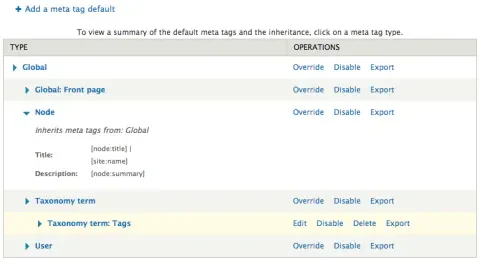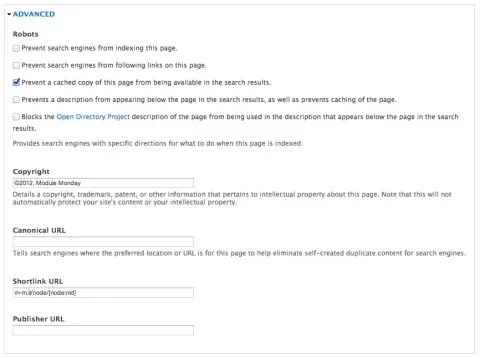Anyone who's ever talked shop about Search Engine Optimization has heard of meta tags. Those bits of extra data jammed in an HTML document's HEAD section provide search engines, browsers, and other software with important information about a document's contents, related links and media, and more. There are quite a few ways to jam meta tags into a Drupal site, and there are even APIs to set the contents of a page's meta tags yourself, if you're a module developer. Thankfully, you don't have to sling code thanks to the excellent Meta Tags module.
Maintained by prolific Drupal developer Dave Reid, Meta Tags provides a centralized configuration screen where common meta tags can be edited sitewide, for specific types of pages, and even for pages belonging to specific entity bundles. Need one set of tags for photo galleries and another for user profile pages? No sweat. Meta Tags uses standard Drupal tokens to build the contents of its tags, and the configuration options themselves can be exported and saved in Feature modules for easier deployment.
Third-party modules can add new meta tags to the mix, and add new types of URL paths that need to receive custom tags. The Panels Meta Tags and Views Meta Tags projects, for example, allow each view and panel to have custom, token-driven meta tags just like nodes, users, and so on. Meta Tags is already a popular solution to the thorny problem of sitewide meta tag customization -- check it out if you need more than Drupal core's auto-generated ones.


